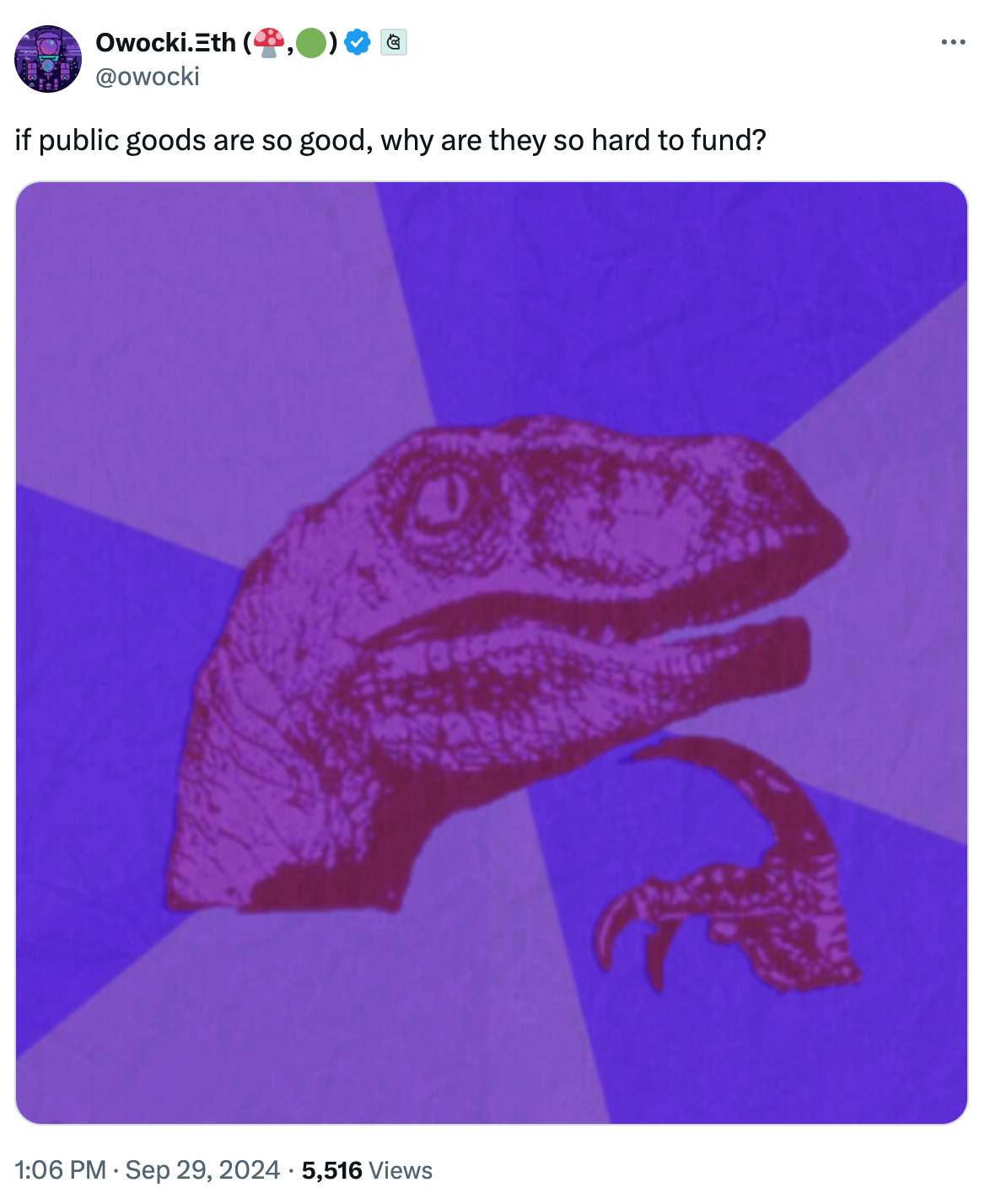Are you tired?
A recent post by Kevin Owocki and Vengist in the Gitcoin forum outlines how "Funding fatigue" increasingly impacts grantees and funders within the Web3 public goods ecosystem. Grantees are burdened by the need to manage and promote multiple grants across various platforms, leading to challenges in visibility and constant self-promotion. On the other hand, funders are overwhelmed by a high volume of funding requests and face significant computational costs when evaluating numerous proposals — all within a complex system.
Aggregation
To mitigate these issues, the authors propose aggregation solutions. For grantees, a "common app" could enable simultaneous applications to multiple grant programs, and interoperable registry protocols could streamline grant management. For funders, using weighted lists and self-curating registries (SCRs), including nested SCRs, can aggregate demand and simplify funding decisions — primarily if guilds are formed to function as intermediaries.
“Our proposed solution is aggregation. By formalizing grantee applications and funding decisions through tools like a “common app,” registry protocols, and guilds, the process can be simplified, reducing strain on both funders and grantees.”
By aggregating supply and demand, both grantees and funders can operate more efficiently, reducing fatigue and enhancing the sustainability of Web3 public goods funding.
Guilding
Commenters on the post appreciate the proposal but express concerns about potentially shifting fatigue to guilds. Owocki has followed up with a separate post discussing the role of guilds in the Ethereum ecosystem as a means of collective bargaining and resource pooling — exemplified by the Protocol Guild supporting core developers. In this post, he proposes creating a "Guild Guild" to facilitate the formation of additional guilds, aiming to enhance coordination, reduce attention costs, and empower communities to self-organize and collaborate on public goods funding. This guild ecosystem would embody the values of anti-capture, pluralism, and localized governance.
Owocki and Vengist provide insight into the current state of the grant-making landscape — which is taxing on everyone involved — and propose viable solutions as well. Drawing attention to the problem in this way may generate enough momentum to form a kind of informal guild of like-minded folk who can pool resources and build improved systems. The question will be whether the new systems improve the grants process by providing more clarity and efficiency — or whether they will make it overly complex and opaque by adding new intermediating structures. As always, in this space, our efforts will determine the answer.
🔍 Key Developments Across the Ecosystem
🚨 Finding DAO governance overwhelming? Subscribe to Boardroom for real-time updates, all conveniently organized in one place. 📥✨ A subscription unlocks access to the Boardroom dashboard, projects, and newsletter updates.
1. Arbitrum Proposes Delegate Incentive Program
Arbitrum is exploring a Delegate Incentive Program (DIP) to reward governance delegates for their participation and contributions. This program seeks to boost engagement and provide incentives to those who actively participate in the decision-making process. Read more.
2. ApeCoin Community Rallies with ‘Shout It Out Now’ Proposal
The ApeCoin DAO is buzzing with a proposal called “Shout It Out Now,” which aims to amplify community voices and increase participation. The initiative…





